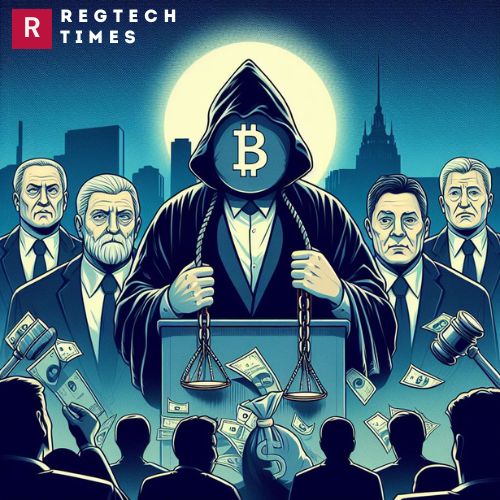In a groundbreaking development, a federal jury in New York delivered a historic verdict, marking the U.S. Justice Department’s inaugural prosecution of cryptocurrency open-market manipulation. Avraham Eisenberg, a resident of Puerto Rico, has been found guilty on counts of commodities fraud, commodities market manipulation, and wire fraud. This case not only underscores the vulnerabilities of decentralized cryptocurrency exchanges but also highlights the imperative for stringent enforcement mechanisms within the digital asset ecosystem.
Background Information
Cryptocurrencies (digital or virtual currencies that use cryptography for security and operate independently of central banks), epitomized by Bitcoin and Ethereum, are digital or virtual currencies utilizing cryptography for security and operating autonomously from central banks.
Decentralized exchanges, a departure from traditional centralized counterparts, facilitate peer-to-peer trading devoid of intermediaries. Perpetual futures contracts, integral to cryptocurrency trading, furnish traders with speculative tools to forecast asset price movements without asset ownership.
The Alleged Scheme of Avraham Eisenberg
At the crux of the case lies Avraham Eisenberg’s alleged orchestration of a fraudulent scheme to amass approximately $110 million worth of cryptocurrency from Mango Markets and its clientele. Eisenberg purportedly engineered the artificial inflation of select perpetual futures contracts on the decentralized cryptocurrency exchange, thereby deceiving the exchange and its investors. This elucidates the perils inherent in unregulated trading platforms within the digital asset domain.
A decentralized cryptocurrency exchange (DEX) is a platform where users can trade cryptocurrencies directly with each other without a central authority overseeing the transactions. Unlike traditional exchanges, DEXs operate on blockchain technology and use smart contracts to execute trades automatically.
Legal Proceedings
Avraham Eisenberg faces a maximum incarceration term of 10 years for commodities fraud and commodities market manipulation, along with a potential 20-year sentence for wire fraud. The unanimous jury verdict underscores the gravity of the charges levied against Eisenberg and the compelling evidence marshaled during the trial.
Avraham Eisenberg’s sentencing, scheduled for July 29, awaits judicial deliberation, where the court will consider statutory factors and the U.S. Sentencing Guidelines in determining the penalty. The U.S. Sentencing Guidelines are guidelines established by the United States Sentencing Commission to provide uniform sentencing practices for federal crimes.
Statements from Officials
Principal Deputy Assistant Attorney General Nicole M. Argentieri underscored the perilous ramifications of manipulative trading, emphasizing its adverse impact on financial markets and investors. U.S. Attorney Damian Williams for the Southern District of New York hailed the groundbreaking prosecution, affirming the office’s unwavering commitment to safeguarding all financial markets. Executive Assistant Director Timothy Langan of the FBI’s Criminal, Cyber, Response, and Services Branch reaffirmed the agency’s resolve to hold perpetrators accountable for fraudulent activities, irrespective of the domain.
Investigation and Prosecution
The FBI spearheaded the investigation into Avraham Eisenberg’s illicit activities, with collaborative support from Homeland Security Investigations and IRS Criminal Investigation. This case underscores the imperative of collaborative efforts in combating illicit activities within the cryptocurrency realm. The pivotal role played by the National Cryptocurrency Enforcement Team (NCET) in prosecuting the case underscores its mandate to investigate and prosecute digital asset-related crimes.
The NCET, established to combat the growing illicit use of cryptocurrencies and digital assets, leads the Department of Justice’s efforts to collaborate with domestic and foreign government agencies. The private sector is involved in collaborating with government agencies to actively investigate and prosecute crimes related to cryptocurrency and digital assets.
The conviction of Avraham Eisenberg in the $110 million cryptocurrency manipulation case represents a watershed moment in the enforcement of financial regulations within the digital asset sphere. This case accentuates the hazards associated with unregulated cryptocurrency exchanges and underscores the indispensability of robust enforcement measures to shield investors and financial markets. As the cryptocurrency landscape evolves, regulatory bodies and law enforcement agencies must remain vigilant in thwarting illicit activities and upholding the integrity of the financial system.


